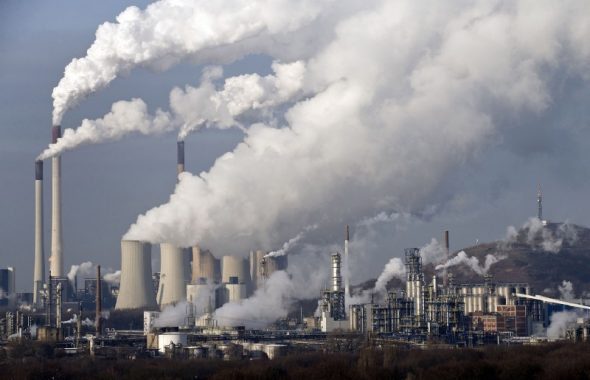On Wednesday, a coalition of European energy companies announced that there would be no new coal plants built throughout the European Union after 2020, in an effort to meet goals set forth by the Paris climate agreement.
Companies from every country within the E.U., with the exception of Poland and Greece, signed on to the initiative, according to the Guardian.
Eurelectric — Europe’s electricity industry association which represents 3,500 utilities across the continent — also said that it would not invest in coal plants after 2020.
“The power sector is determined to lead the energy transition and back our commitment to the low carbon economy with concrete action,” Eurelectric president and CEO of the Portuguese energy group EDP, António Mexia, said in a statement.
Environmentalists applauded the announcement, which comes on the heels of years of declining coal use in Europe.
“It is now clear that there is no future for coal in the E.U.,” Wendel Trio, the director of Climate Action Network Europe, told the Guardian. “The question is: what is the date for its phase out in the E.U., and how hard will the coal industry fight to keep plants open, even if they are no longer economically viable?”
Beyond coal-related carbon emissions being a primary contributor to climate change, studies have found that coal-fired electricity has significant public health risks; a 2016 analysis found that coal dust is responsible for about 22,900 premature deaths per year throughout the E.U.
Coal has steadily lost its share of European electricity generation in recent years, falling to just over 21 percent of the E.U.’s total generation in 2016, according to the nonprofit research group Sandbag. Fueled largely by a switch from coal to natural gas, Europe’s electricity-related emissions fell by 4.5 percent in 2016.
Renewable technology has greatly expanded across the continent, with wind power overtaking coal as Europe’s second-largest form of power capacity in 2016 — though coal is still used to meet more of the continent’s electricity demand. Of all new capacity built across the E.U. in 2016, 86 percent came from renewable sources like wind and solar, as well as more environmentally controversial sources like hydropower and biomass.
Some European countries have already succeeded in going completely coal-free, like Scotland, which shuttered its last remaining coal-fired power plant in March of 2016. The country has pledged to obtain 100 percent of its electricity from renewable sources by 2020. And last year, renewable energy powered Germany for an entire day, and powered Portugal for four consecutive days.
Still, coal power accounts for 39 percent of carbon emissions within the European Union’s emissions trading scheme, which includes factories and power stations from all 28 member states. Poland, which did not agree to the pledge to build no new coal plants after 2020, gets 90 percent of its electricity from coal-fired power plants. And much of Europe is still falling well behind on its individual commitments under the Paris agreement; only Sweden, Germany, and France are currently pursuing policies in line with their individually determined commitments, according to one recent study.
The announcement comes at a time when the United States — which for the last eight years sought to be a leader on climate change — is retreating from the international stage. President Donald Trump, who once called climate change a “hoax” created by the Chinese, has pledged to both revitalize the United States’ slumping coal industry and withdraw from the Paris climate agreement. It now appears the U.S. may remain in the agreement, but with a new focus on bringing fossil fuel interests — like coal and oil — to the table.
Still, energy experts and coal executives say that Trump’s bullish stance on coal will not be enough to save the industry, which has been beleaguered not just by environmental regulations but by increased automation and cheap natural gas and renewables. Globally, coal-fired projects under development saw a steep decline between 2016 and 2017, led primarily by policies aimed at fighting air pollution in developing countries like Chinaand India.











